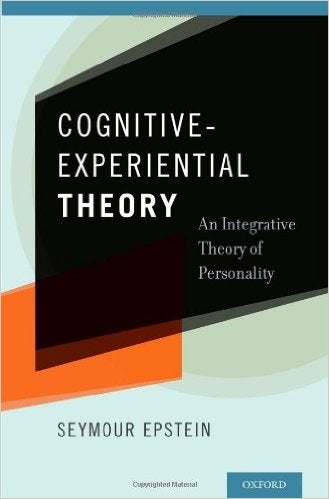This article was published in Scientific American’s former blog network and reflects the views of the author, not necessarily those of Scientific American
This year we lost a lot of human lives. While high profile celebrities are the most visible ones, let's not forget there were so many lives lost, that once were so full of meaning and purpose, and touched so many on a daily basis. In her beautiful new book, The Power of Meaning: Crafting a Life that Matters, Emily Esfahani Smith quotes novelist George Eliot's last paragraph of Middlemarch:
"But the effect of her being on those around her was incalculably diffusive: for the growing good of the world is partly dependent on unhistoric acts; and that things are not so ill with you and me as they might have been is half owing to the number who lived faithfully a hidden life, and rest in unvisited tombs."
Maia Weinstock already wrote about 10 notable women in science and technology, but I'd like to briefly pay a tribute to two psychologists who touched my own life, and who I know influenced so many others: Seymour Epstein and Shane Lopez.
On supporting science journalism
If you're enjoying this article, consider supporting our award-winning journalism by subscribing. By purchasing a subscription you are helping to ensure the future of impactful stories about the discoveries and ideas shaping our world today.
Seymour Epstein (1925-2016)

Credit: Oxford
Most of you heave heard of Kahneman’s dual-process theory. “System 1” and “System 2” have become household names. But far less known is that Kahneman built his theory, at least in part, on the shoulder of a giant: Seymour Epstein. His Cognitive-Experiential Self-Theory (CEST), which has its roots in his 1973 paper “The self concept revisited or a theory of a theory“, replaced Freud’s irrational and aggressive unconscious with a more adaptive, yet still emotional, experiential system. According to Epstein, our most primitive emotional experiences should not be repressed, discarded, or controlled, but that they are essential to becoming a fully integrated human being.
Epstein's work has had a significant impact on my thinking about human intelligence. Indeed, a major inspiration for coming up with my dual-process theory of intelligence was his 1994 paper, "Integration of the Cognitive and the Psychodynamic Unconscious", which I first encountered while in graduate school. After reading that paper, I excitedly emailed Epstein. To my delight, he responded favorably, setting off a series of stimulating discussions.
I feel as though we formed a special bond. In fact, in 2014 he asked me if I would write the foreword to his upcoming book on the implications of his theory for religion and world peace. Here is the foreword I wrote, which I knew he appreciated. Also, you can hear my last chat with him on my podcast, which I recorded just a few months before he passed away. You can hear him discuss his legacy.
One thing that clearly disappointed Epstein is that his dual-process theory was mostly ignored later in his life. He once shared with me this timeline he made, which traces the development of his CEST theory in relation to subsequent dual-process theories. Now, whether or not this timeline is 100% accurate is not the point. I just feel a responsibility to let him at least attempt to correct the record, as he no longer has the opportunity to do so. At the very least, his theory was truly influential, and quite revolutionary when it was first proposed.
Epstein was 91 when he passed away. RIP, Sy. Thanks for your tremendous influence on the field, and on my life.
Shane Lopez (1970-2016)

Credit: Livehappy.com
This lose is particularly disheartening. Shane was so young (he was only 46). There was so much unrealized potential.
Nevertheless, I'd like to focus on what was realized, which was tremendously influential to a large number of people working in the field of positive psychology. Shane left a tenured position at Kansas University to work as a senior scientist at Gallup where he developed new ways of measuring character strengths, hope, engagement, and well-being. He authored 10 books, most recently "Making Hope Happen: Create the Future You Want for Yourself and Others". I know he was also working on a book just before he passed away. From what I hear (we share a publishing house), it was a dynamite book. I really hope it sees the light of day.
Lopez was also a really inspirational teacher and mentor to students and teachers at all levels. According to his obituary, "He found much meaning in mentoring aspiring teachers to recognize their unique talents to honor the struggles, activate the potential and light the fire of hope within each student." I personally know a number of graduate students who he has touched deeply, and who were so devastated by Shane's loss.
I personally knew Shane, as we both were advisor's of The Future Project, and he frequently gave riveting guest lectures in my positive psychology class at Penn. In my class, I drew a lot on his textbook, Positive Psychology: The Scientific and Practical Explorations of Human Strengths. Shane's positivity, warmth, compassion, and witty sarcasm made him such a likable guy (listen to our podcast chat here). I remember at the last Positive Psychology Conference in Orlando, Florida I showed up a little late to his talk in my swimming gear (I planned on going swimming after his talk). Without skipping a beat, he stopped mid-sentence, and said "Well Scott, glad you could join us. Hope I'm not taking you away from your swim!"
I know for a fact that Shane made a real difference in the lives of so many students and teachers, and I also know he greatly touched the lives of his family and friends. Thank you Shane for all that you did to give hope to people in this world.
Was 2016 the year hope died? It's all too easy to simply say yes. However, I know Shane would want us to remain hopeful. As Shane (and his own late mentor Charles Snyder taught us), hope involves both the will and the ways to get there. In 2017, let's start with renewed will and commitment to making the world a better place, and intentionally come up with plans to make it happen.
But let's never forget these two beautiful minds we lost in 2016, as well as the many other beautiful minds we lost, who truly did make this world a better place.